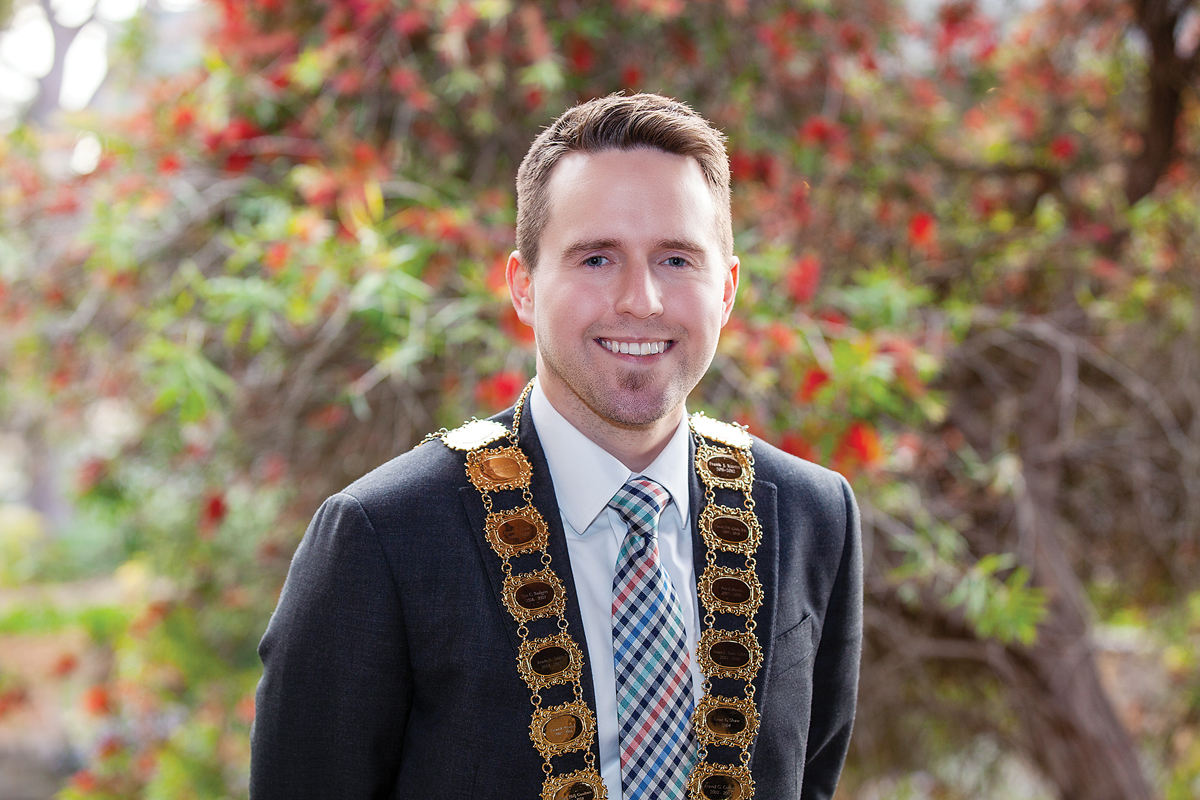A “WHIRLWIND 48 hours” followed the election last week of Cr Steve Holland as Mornington Peninsula Shire mayor.
Wild weather across the shire caused landslides, flooding and beach erosion.
Holland’s introduction to being given the council’s top job included a crash course by shire engineers into the causes of the landslides and visiting some of the peninsula’s worst hit areas.
He says “there’s a need to educate people about the warning signs” of an impending landslide, one of which caused eight houses to be evacuated at McCrae.
Holland was elected mayor at a special council meeting on Tuesday 15 November in a contest against deputy mayor Cr Lisa Dixon and Sarah Race. Holland and Race each received four votes to Dixon’s two in the first round, with Holland winning 6:4 after the second vote.
The position of deputy mayor went to Cr Debra Mar, after a two-way contest against Cr Antonella Celi.
Holland’s appointment is the third year in a row that the position has gone to a Briars Ward councillor.
In the lead up to this year’s mayoral election tipsters in the shire initially had Marsh and Dixon favourites to win a second term. But the odds shortened rapidly, and Holland later told The News that “people knew I’d nominate”.
In a speech to council after being elected he said being mayor was “not a position I ever expected to find myself in”.
Marsh posted on The News’s Facebook page that he would not be seeking a second term among comments being made about a house in Hastings that he had bought from the state government (“Mayor buys into public housing” The News 8/11/22).
After he was elected mayor one year ago, Marsh said a “key role” was to “ensure councillors “work as a team and not 11 individuals” (“New mayor to seek council unity” The News 23/11/21).
In his acceptance speech, Holland reminded residents that councillors and many shire staff were part of the community.
“The coming year should be one of “incremental, continuous improvement. We know as an organisation what we need to do. We know what those basic services are that every resident expects us to deliver,” he said. “So, let’s focus on that. Improving by just one per cent per day over the course of a year delivers parabolic returns. We need a balance of small, fast wins and good, long-term strategic planning.
“I truly believe that the small sins of each individual culminate in the great sins of the state and that by being better citizens we will build a better society.
“The Mornington Peninsula as a region would be unstoppable if we can all identify the issues, causes and projects that unite us and not divide us. To ensure that a majority of the time, we can all be rowing in the same direction.
“If councillors from all political persuasions and walks of life can put their differences aside for the greater good, so too can the citizens of the Mornington Peninsula.
“My message to my fellow Councillors is that the community will measure us on the outcomes of our decisions.
“There’s an old saying that the road to hell is paved with good intentions.
“As leaders and decision-makers, good intentions simply aren’t good enough. It’s not good enough to be nice, it’s not good enough to mean well. We have to deliver for our community and it’s our tangible policy outcomes that will be measured.”
Holland has a Bachelor of Communication from RMIT University and is now a self-employed web developer.




